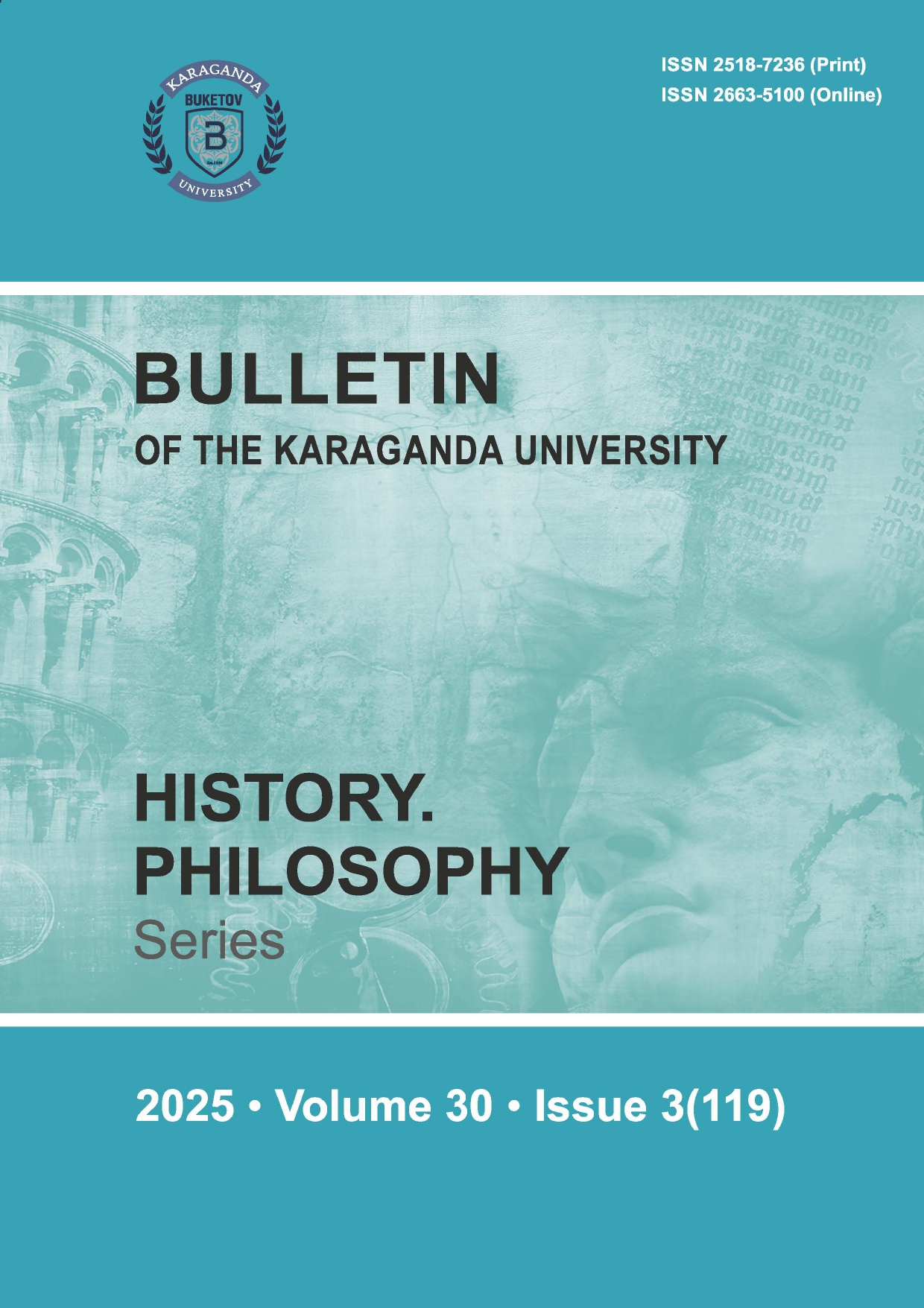The Homeland as a Moral Horizon: Philosophical Reflections on Return Migration and Identity Among Repatriated Kazakhs
DOI:
https://doi.org/10.31489/2025hph3/221-229Keywords:
Ethnic, return, migration, moral, geography, horizon, repatriation, Kazakhstan, narrative, phenomenology, post-Soviet identity, belongingAbstract
This article explores ethnic return migration to Kazakhstan through a moral-philosophical lens, focusing onthe lived experiences of Qandas — ethnic Kazakhs returning from China, Mongolia, and Uzbekistan. Whileprevious research has examined policy frameworks and integration challenges, this study reinterprets returnas an ethical and existential process. Drawing on Heidegger’s concepts of dwelling and being-at-home, andthe notion of moral geography, we argue that repatriation is experienced as a striving toward a moral horizonrather than a mere relocation. Through narrative interviews with returnees, we reveal how ancestral land isimagined not only as a birthplace but as a space of obligation, memory, and identity reconstruction. Yet re-turnees often face exclusion and dissonance, complicating state narratives of national restoration. By bridgingmigration studies, moral philosophy, and phenomenology, this paper illuminates how return becomes an on-going ethical negotiation of belonging, recognition, and self-becoming in post-Soviet Kazakhstan.




